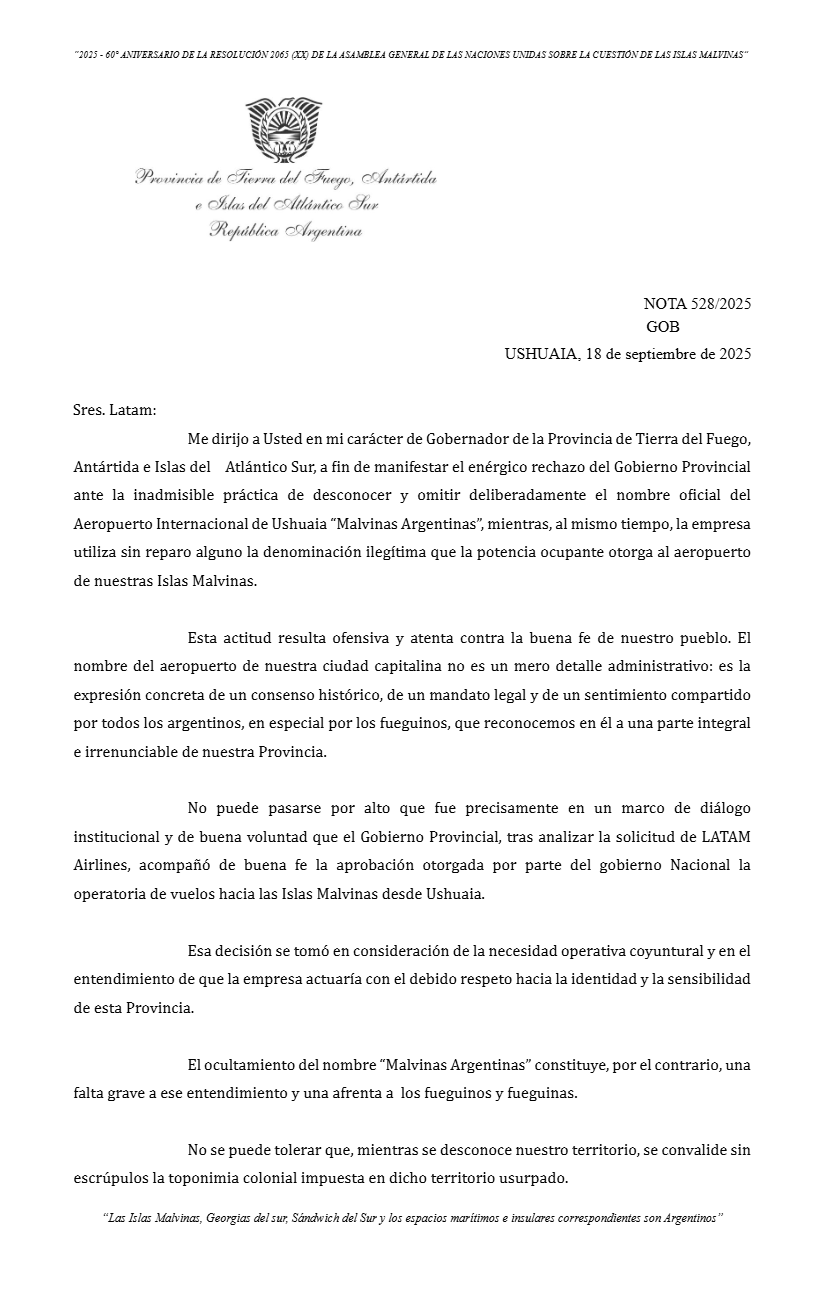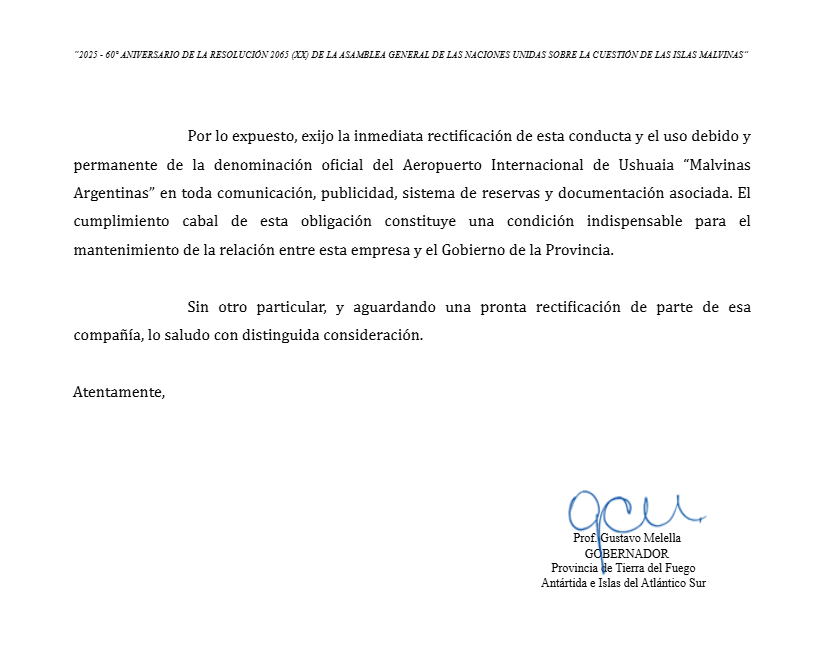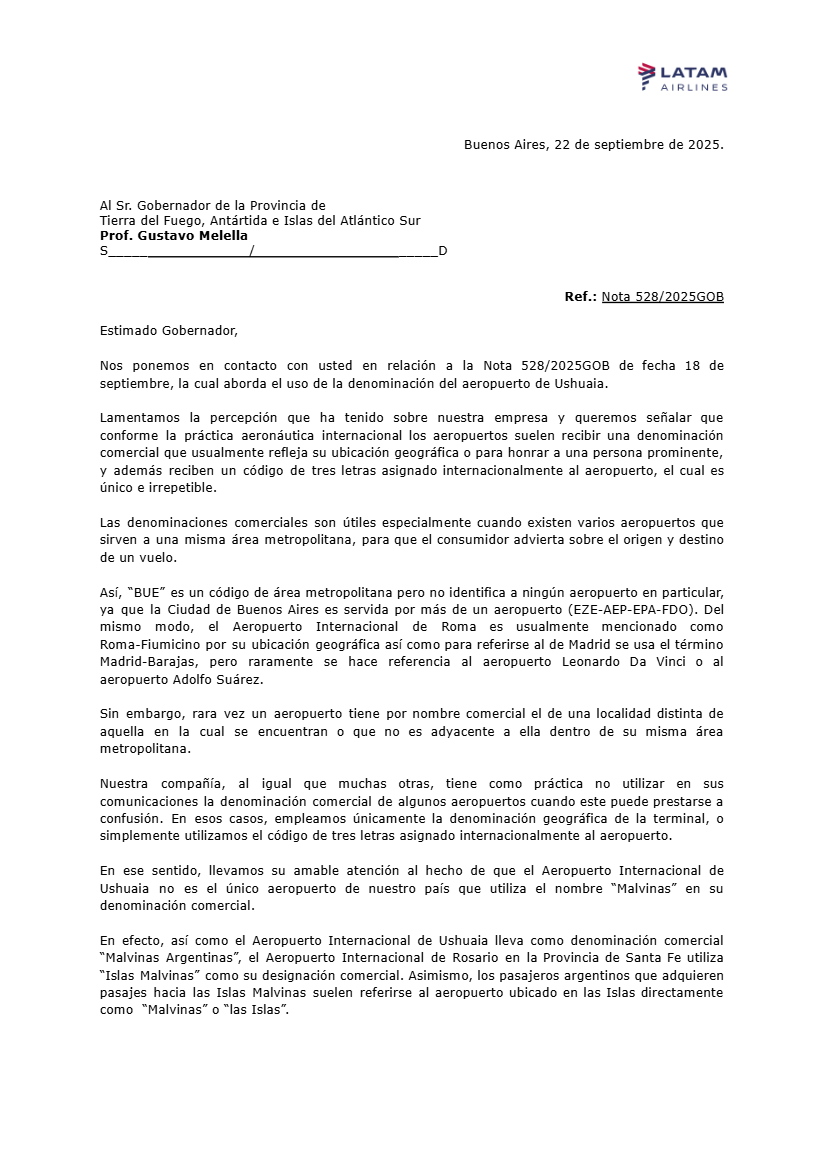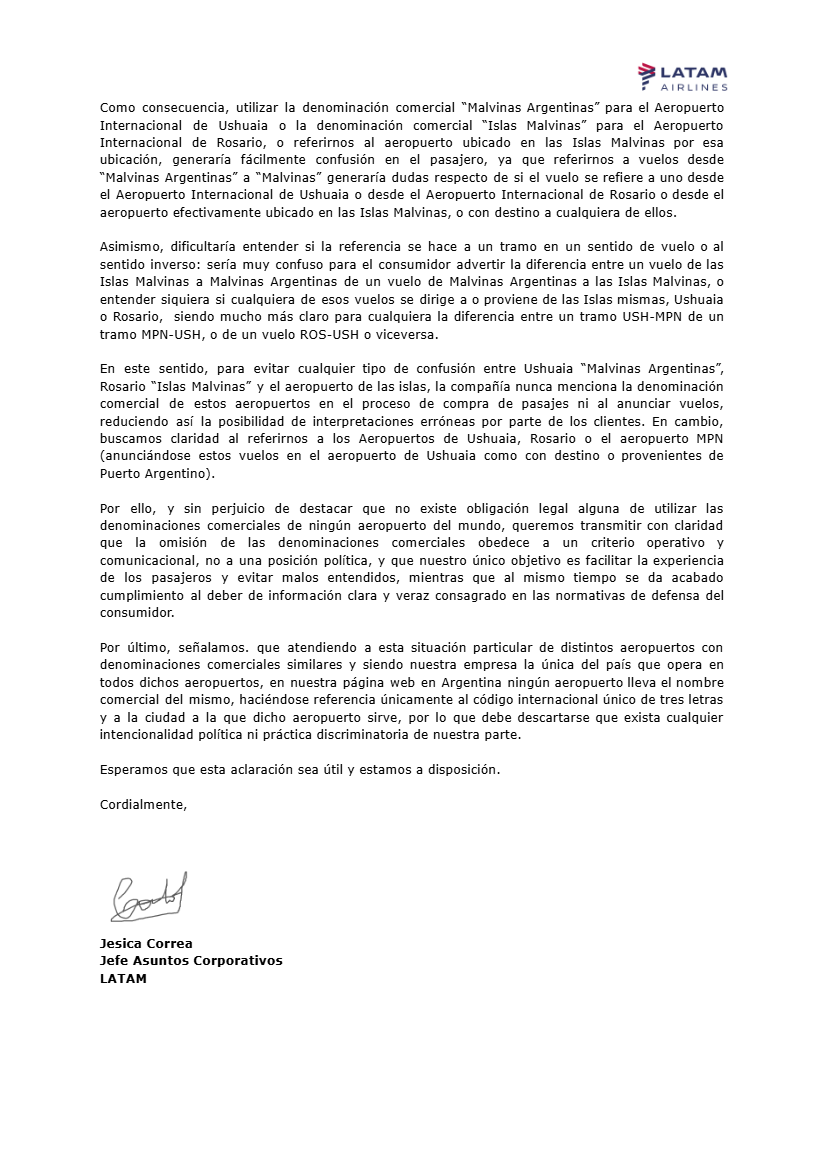The controversy generated by LATAM's omission of the official name "Malvinas Argentinas" at Ushuaia International Airport has been formalized in an exchange of notes that exposes the tension between Argentine sovereignty and international corporate pressure.
Following the public ultimatum from Tierra del Fuego Governor Gustavo Melella, the company responded with technical arguments that, far from resolving the conflict, reinforce the certainty that the company complied with a political decision by the usurping British colony.
Filter these notes for me
Displaying the arbitrary nature of his government after failing to respond to the four requests made by Agenda Malvinas, Melella used journalistic means to leak —through a recently created media outlet by his former Energy Secretary, Moisés Solorza — the note he sent to LATAM last Thursday the 18th and the response from the company's Argentine subsidiary on Monday the 22nd, signed by Jessica Correa, Head of Corporate Affairs and Communications . The coordinator was the Secretary of the Malvinas Affairs, Andrés Dachary .


In the note, the president expresses the provincial government's "strong rejection" of the "unacceptable practice of deliberately ignoring and omitting the official name of the Ushuaia International Airport, 'Malvinas Argentinas.'"
The province's central argument lies in the airline's hypocrisy : the company uses "without any hesitation the illegitimate name that the occupying power gives to the airport of our Malvinas Islands," while ignoring the Argentine name. Melella made it clear that the name is not a "mere administrative detail," but the expression of a "historical consensus, a legal mandate, and a shared sentiment."
If I approve you, I also disapprove of you.
The governor recalled that the approval of the flight to the islands from Ushuaia was given within a framework of "institutional dialogue and goodwill" and with the understanding that LATAM would act with "due respect" for the provincial identity . The omission of the name, he concluded, constitutes a "serious breach of that understanding and an affront to the people of Tierra del Fuego." As an essential condition for maintaining its operation, Melella demanded immediate rectification.
All of the company's arguments are a clear evasion maneuver, as it cannot justify its submission to the British will to omit the official name of Ushuaia International Airport, whose name is: "Malvinas Argentinas ." LATAM's Head of Corporate Affairs tells Melella that she regrets the governor's "perception . " She argues that she adheres to the "international aeronautical practice" of using geographical names and three-letter codes to avoid "confusion," especially where there are multiple airports. She cites examples such as Rome-Fiumicino and Madrid-Barajas , and emphasizes the irrelevance of the official name in these contexts.
The fault lies in the Toponymy
The most grotesque point of LATAM 's defense is its attempt to equate Ushuaia Airport with Rosario International Airport, which uses "Islas Malvinas" as its commercial designation . The company claims that using the full names of both airports "would easily generate confusion for passengers," making it difficult to distinguish a section between Ushuaia and Monte Agradable/Mount Pleasant (USH-MPN) in the Malvina Islands, from another between Rosario and Ushuaia (ROS-USH), where (in the latter) there is no direct flight and there never was .


For this reason, LATAM maintains that it prefers to use geographic codes and designations for all flights operating out of these terminals with similar names, ruling out "any political intention or discriminatory practice."
LATAM's staunch defense of the usurpers
The full text of LATAM's response reveals a clear maneuver of concealment . The airline dwells on technicalities regarding IATA ( International Air Transport Association ) codes and the need to avoid confusion; but it intentionally omits the main cause of the dispute : the British colonial authority's demand, reported by its own media, to remove the Argentine name.
By basing its defense on the fact that the name "Malvinas Argentinas" is the source of confusion, LATAM shifts the burden of the problem and, de facto, blames Argentine toponymy for the alleged "ambiguity." This justification is unsustainable: absent political pressure, LATAM could, as all airlines worldwide do, use the full official name in its ticket sales system without the need for such a selective and politically charged policy of omission .
The conflict remains in limbo: LATAM has entrenched itself in a corporate justification, evading the geopolitical responsibility it assumed by yielding to British demands, while the governor's ultimatum, now backed by documents made public, awaits concrete action from ANAC and the advancement of the repudiation bill in the National Congress. The struggle for symbolic sovereignty is more active than ever .
The Tierra del Fuego government is attacking press freedom.
The late and biased publication of the full documents by the Tierra del Fuego government, while confirming Melella's formal action, once again reinforces the image of a provincial government acting with reluctance and with an absolute desire to hinder journalistic coverage.






